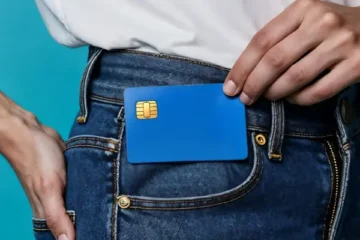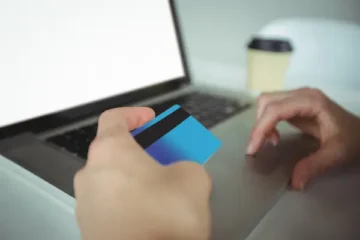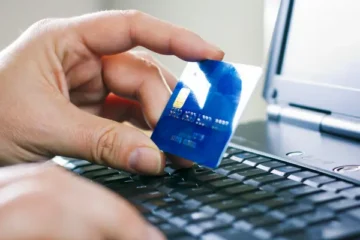The Dangers of Credit Card Minimum Payments
Have you ever wondered about the real dangers behind making only the minimum payment on your credit card? Many of us fall into the trap of paying only the minimum, without realizing the devastating consequences it can have on our personal finances.
Advertisements
In this article, we will explore in detail the financial impact of minimum credit card payments, their consequences, viable alternatives, and strategies for effectively managing your debts.
Advertisements
Financial Impact of Minimum Payments
Making the minimum payment may seem like a quick and easy solution to alleviate the pressure of credit card debt.
However, the long-term financial impact can be extremely harmful.
Advertisements
When you pay only the minimum, you are actually postponing the payment of your total debt balance. Meanwhile, interest continues to accumulate, making your debt grow larger.
Consequences of Paying Only the Minimum
Paying only the minimum on your credit card debt may seem like a temporary solution to ease financial strain, but the consequences can be far-reaching and detrimental.

In this section, we’ll delve into the repercussions of making minimum payments, uncovering the hidden costs and long-term impacts that can significantly affect your financial well-being.
- Accumulation of High Interest: Credit cards typically have very high interest rates. By paying only the minimum, you end up paying a significant amount in interest each month, further increasing your debt.
- Worsening Financial Situation: Postponing payment of the total balance can lead to a debt spiral, making it even more difficult to control your personal finances.
- Impact on Credit Score: Minimum credit card payments can negatively affect your credit score, making it harder to obtain loans in the future.
Alternatives to Minimum Payments
Fortunately, there are viable alternatives to minimum credit card payments that can help you avoid the dangers of increasing debt.
1. Paying the Full Balance:
- Whenever possible, try to pay the full balance of your credit card each month. This will prevent the accumulation of interest and help keep your finances under control.
2. Paying in Installments:
- If paying the full balance is not possible, consider paying more than the minimum by dividing your debt into smaller installments that you can pay over time.
3. Balance Transfer:
- Explore the option of transferring your credit card balance to a card with lower interest rates or even to a personal loan with more favorable terms.
How to Avoid the Dangers of Minimum Payments
Avoiding the dangers of minimum credit card payments requires financial discipline and careful planning.
1. Create a Budget:
- Establish a monthly budget that includes all your expenses and allocate a specific amount to pay off your credit card debt.
2. Avoid Impulsive Spending:
- Limit unnecessary purchases and avoid using your credit card for impulse spending that you cannot pay off in full.
3. Track Your Expenses:
- Keep a detailed record of all your expenses and regularly check your credit card statement to ensure there are no fraudulent or unauthorized charges.
Risks of Accumulating Debt with Minimum Payments
Minimum credit card payments can lead to a debt spiral that can be difficult to overcome.
1. Chronic Indebtedness:
- Postponing payment of the full balance can result in ever-increasing debt, making it difficult to pay off in the future.
2. Financial Stress:
- Dealing with increasing debt can cause financial stress and negatively affect your mental health and overall well-being.
3. Impact on Personal Relationships:
- Financial problems can cause tensions in personal and family relationships, especially if there are disagreements about how to handle the debts.
Strategies for Paying More Than the Minimum
Paying more than the minimum can help reduce your debt more quickly and save money on interest.
1. Set Payment Goals:
- Establish realistic goals for paying off your credit card debt more quickly by setting a specific amount you want to pay each month.
2. Consider Additional Sources of Income:
- Explore ways to increase your income, such as working part-time, selling unused items, or offering freelance services.
3. Negotiate with the Credit Card Issuer:
- Contact your credit card issuer to negotiate lower interest rates or an alternative payment plan that is more affordable for you.
Tips for Managing Credit Card Debt
Effectively managing your credit card debt requires careful planning and commitment.
1. Prioritize Your Debts:
- Identify your credit card debts with the highest interest rates and prioritize paying them off first.
2. Avoid Opening New Cards:
- Avoid opening new lines of credit, as this will only increase your debt burden and make it harder to manage your finances.
3. Seek Professional Help:
- If you are struggling to control your debts, consider seeking financial counseling from a qualified professional.
How Minimum Payments Affect Credit Scores
Minimum credit card payments can have a negative impact on your credit score.
1. Payment History:
- Minimum payments can result in payment delays, which can negatively affect your payment history and credit score.
2. Credit Utilization:
- Maintaining high credit card balances relative to your total limit can reduce your credit score, even if you are paying the minimum.
3. Accumulated Debts:
- Having high credit card balances may indicate to lenders that you are overwhelmed with debt, which can hurt your credit score.
How to Calculate Interest and Additional Costs
Calculating the interest and additional costs of minimum payments can help you better understand the financial impact of this practice.
1. Use an Interest Calculator:
- There are several online calculators that can help you determine how much you will end up paying in interest if you choose to pay only the minimum.
2. Review Your Credit Card Statement:
- Check your credit card statement to better understand how minimum payments are being applied and how much you are paying in interest.
3. Refer to Your Card’s Terms:
- Read your credit card’s terms to fully understand how interest is calculated and what additional fees may be applied.
By adopting a careful and strategic approach to managing your credit card debts, you can avoid the dangers of minimum payments and work toward a stronger and more stable financial health.
Always remember that small changes in your spending and payment habits can have a big impact on your long-term personal finances.





